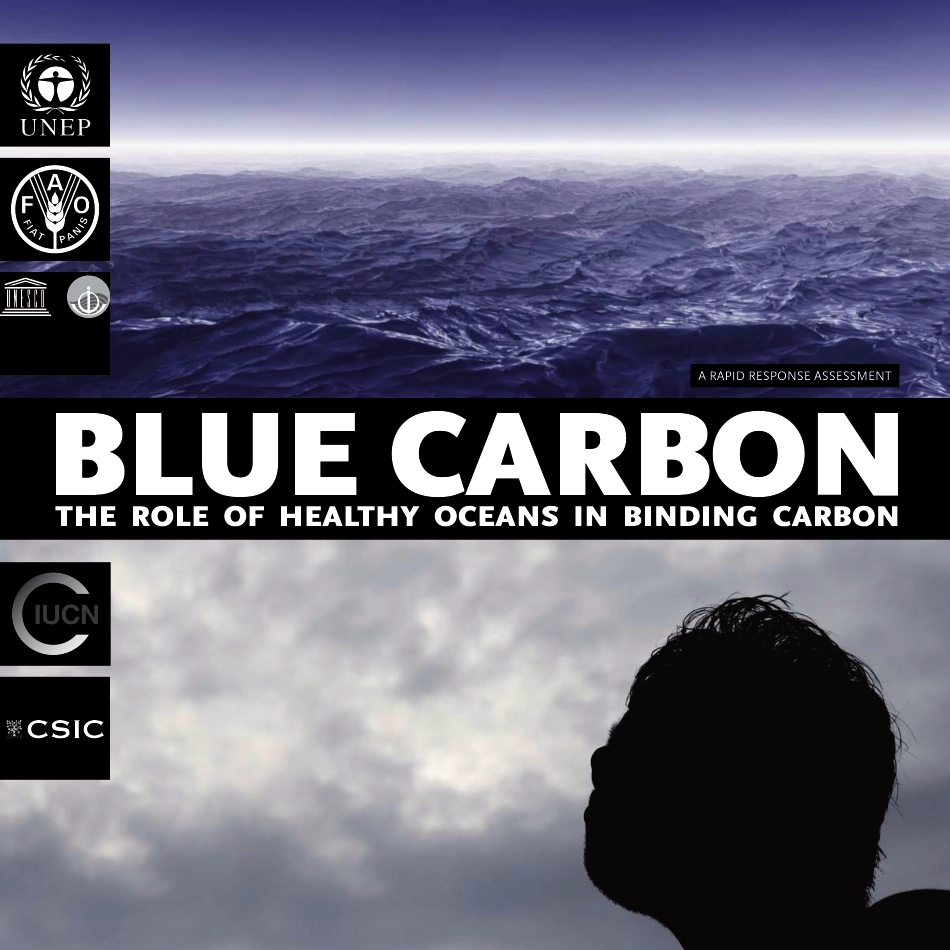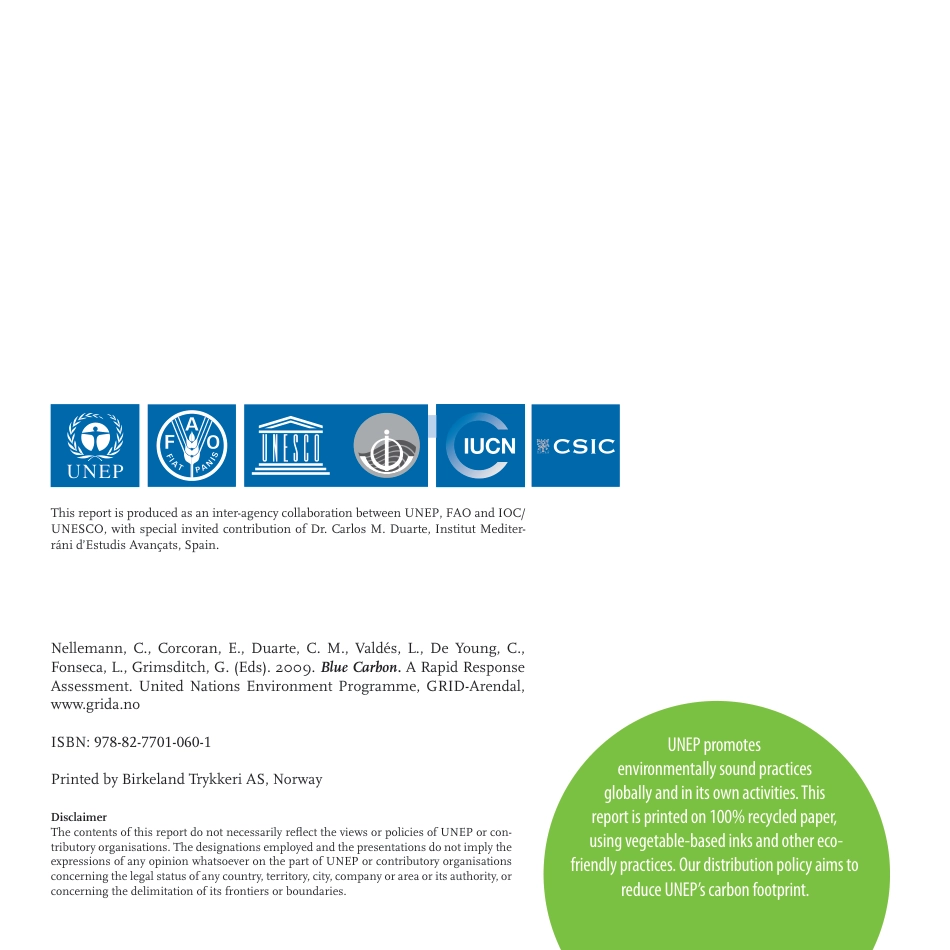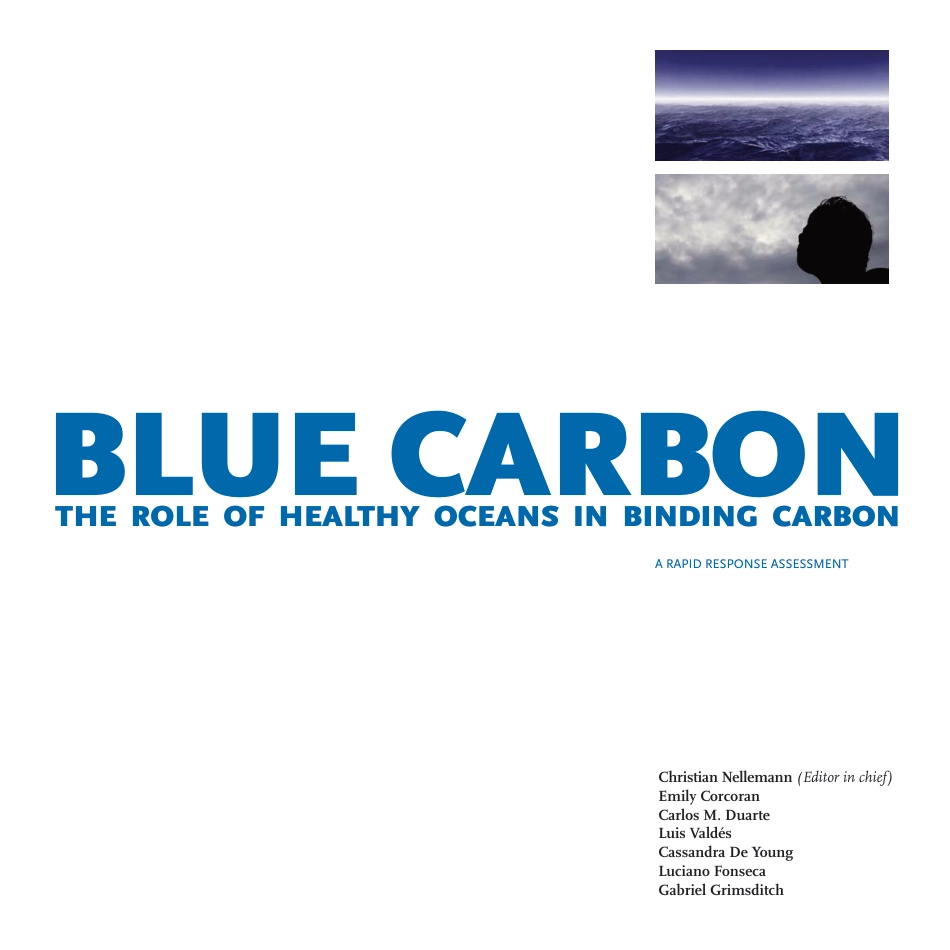1A RAPID RESPONSE ASSESSMENTTHE ROLE OF HEALTHY OCEANS IN BINDING CARBONBLUE CARBONDisclaimerThe contents of this report do not necessarily reflect the views or policies of UNEP or con-tributory organisations. The designations employed and the presentations do not imply the expressions of any opinion whatsoever on the part of UNEP or contributory organisations concerning the legal status of any country, territory, city, company or area or its authority, or concerning the delimitation of its frontiers or boundaries. UNEP promotes environmentally sound practices globally and in its own activities. This report is printed on 100% recycled paper, using vegetable-based inks and other eco-friendly practices. Our distribution policy aims to reduce UNEP’s carbon footprint.This report is produced as an inter-agency collaboration between UNEP, FAO and IOC/UNESCO, with special invited contribution of Dr. Carlos M. Duarte, Institut Mediter-ráni d’Estudis Avançats, Spain.Nellemann, C., Corcoran, E., Duarte, C. M., Valdés, L., De Young, C., Fonseca, L., Grimsditch, G. (Eds). 2009. Blue Carbon. A Rapid Response Assessment. United Nations Environment Programme, GRID-Arendal, www.grida.noISBN: 978-82-7701-060-1Printed by Birkeland Trykkeri AS, NorwayChristian Nellemann (Editor in chief)Emily CorcoranCarlos M. DuarteLuis ValdésCassandra De YoungLuciano FonsecaGabriel GrimsditchA RAPID RESPONSE ASSESSMENTTHE ROLE OF HEALTHY OCEANS IN BINDING CARBONBLUE CARBON45The burning of fossil fuels is generating levels of what one might term ‘brown’ and ‘black’ carbon in the atmosphere and unless checked may take global temperatures above a threshold of 2˚C. Dramatic reductions are possible by accelerating energy efficiency measures and boosting the...



